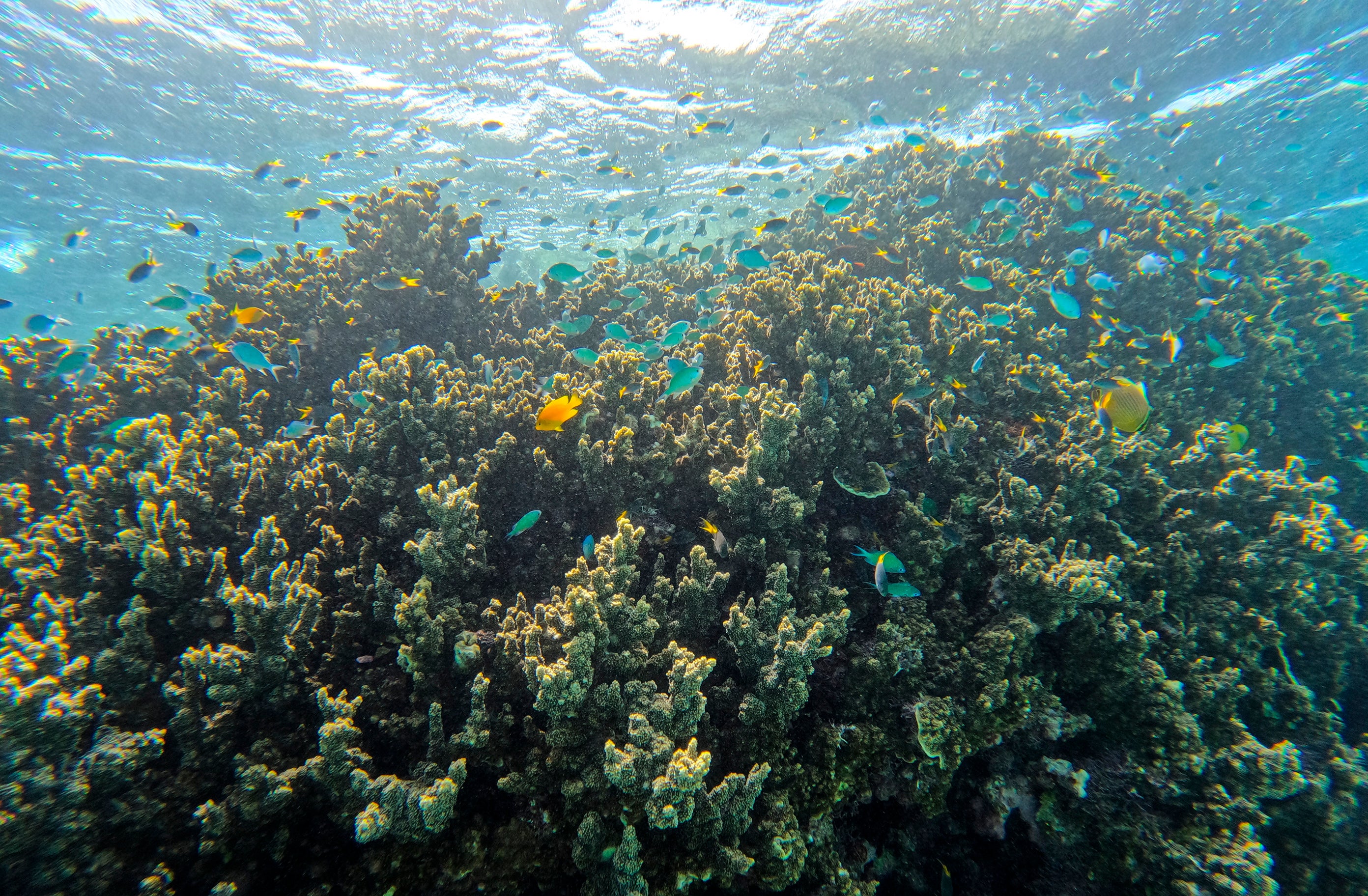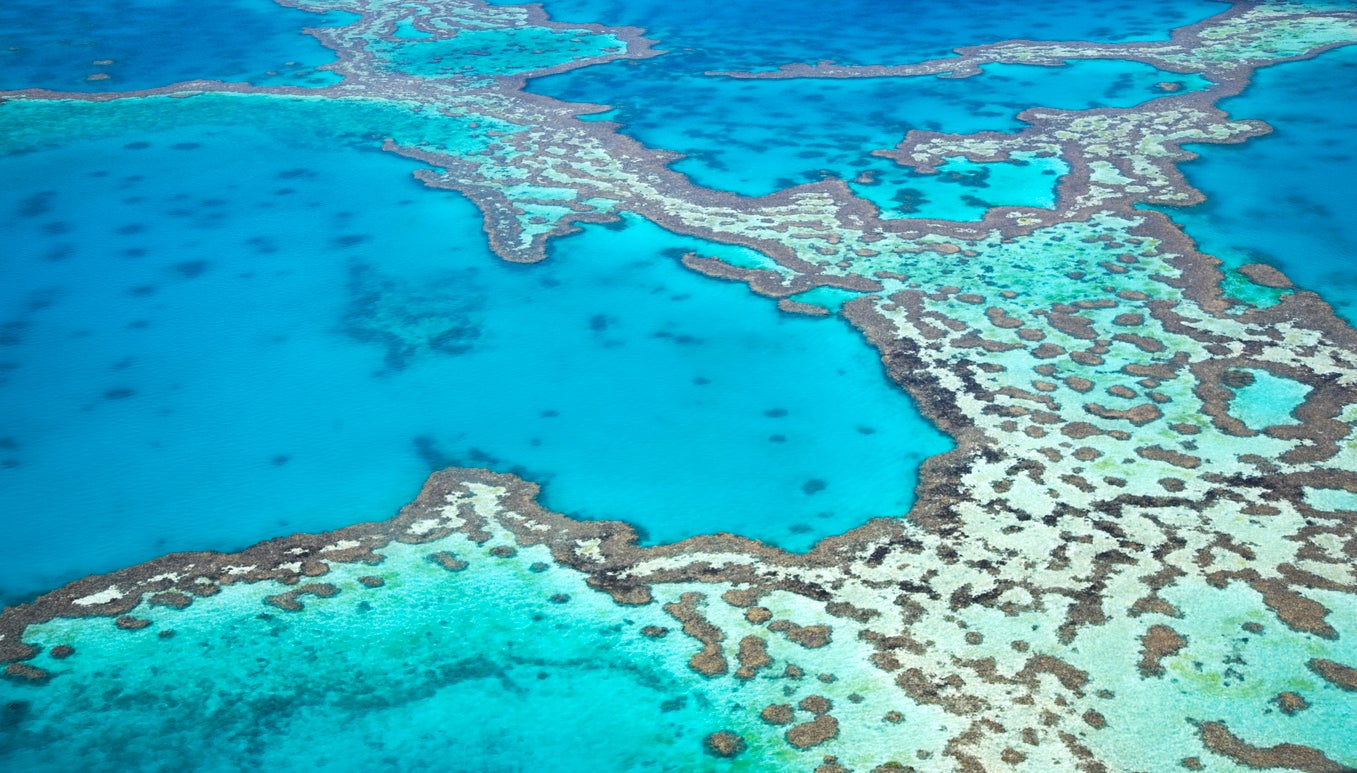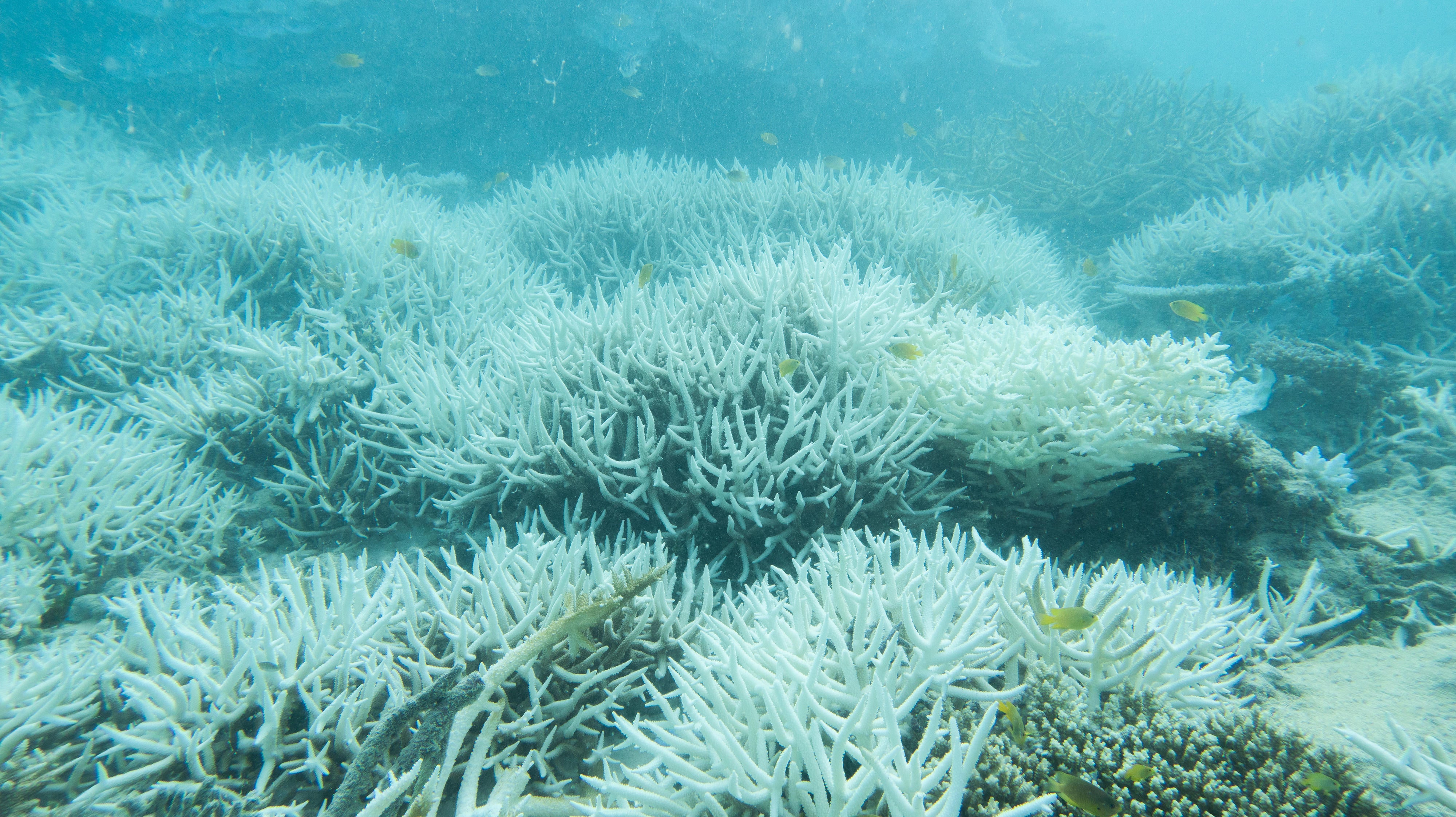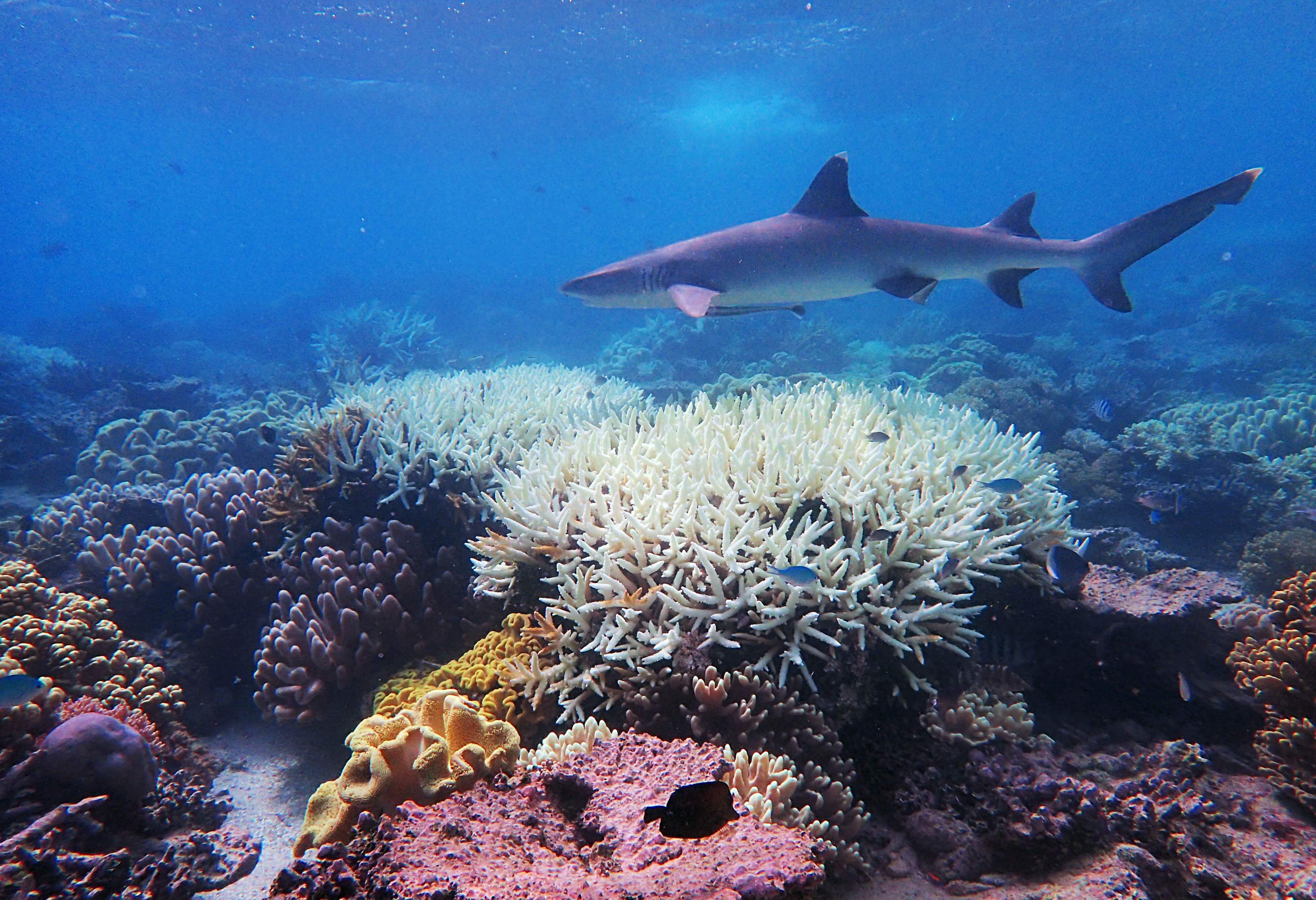Scientists have discovered a coral colony on the Great Barrier Reef that can survive higher temperatures than previously thought, raising hopes for the survival of a species of coral that has come under serious threat in recent years.
A study published Monday found that certain corals are better able to resist bleaching, a phenomenon in which corals lose their vibrant color and are at risk of dying when exposed to heat stress, which is now occurring more frequently and for longer periods due to the climate crisis.
The discovery offers hope that these resilient corals could play a key role in the survival of the Great Barrier Reef, which is currently experiencing its fourth global mass bleaching event due to record-high ocean temperatures.
Researchers from Southern Cross University examined more than 500 table coral colonies. Acropora From 17 locations across the Great Barrier Reef.
Using portable laboratory equipment, the researchers took their instruments out to sea to measure the heat tolerance of these coral colonies directly on the reef, allowing them to observe how different corals respond to increasing temperatures and stress in their natural environments.
“We found heat-tolerant corals on nearly every reef we studied, highlighting that corals across the Great Barrier Reef may hold the key to protecting and restoring the reef,” said Melissa Naugle, lead author of the study.

Heat-tolerant corals are colonies that can survive in warmer waters without bleaching. Coral bleaching occurs when rising ocean temperatures stress the coral, causing it to expel the algae that live in its tissues and rely on for food. Without these algae, the coral turns white and becomes more vulnerable to disease and death.
Coral colonies vary in their ability to tolerate heat, and these differences are important for the survival of the reef.
“Naturally occurring changes in heat tolerance are critical to helping corals adapt to a warming climate and for restoration programs to be successful,” Naugle explained.
One of the most important findings from the study is that not all corals are affected equally by rising temperatures: genetic differences make some coral communities more tolerant of heat than others.

This is essential to the process of natural selection, ensuring that more tolerant corals survive and are more likely to pass on their heat-tolerance traits to future generations.
“Differences between individual corals drive natural selection to produce future generations of more resilient corals,” said Dr Line Bay, principal research scientist at the Australian Institute of Marine Science (AIMS) and co-author of the study.
In other words, as ocean temperatures continue to rise, more heat-tolerant corals could help reefs rebuild and recover by producing offspring that are better suited to warming environments.

The team’s next step is to analyze the genetic makeup of these heat-tolerant corals using DNA sequencing.
Identifying which genes contribute to heat tolerance will allow scientists to better understand how these resilient corals are adapting to changing environments and use this information to help develop conservation strategies.
The discovery of heat-tolerant corals has important implications for coral restoration programs: One approach is selective breeding, where the most heat-tolerant corals are bred to produce offspring that are even more resistant to warming ocean waters. This could help speed up the way corals adapt to climate change.
“Breeding could accelerate adaptation by producing coral offspring that are better suited to warmer waters,” said Dr Emily Howells, co-author of the paper and senior research fellow at the university.
But the effectiveness of this approach depends on how well heat tolerance is tied up in genes that are passed on to future generations, she added.
The most heat-tolerant corals identified in the study are now being used in selective propagation trials as part of RRAP, a large-scale effort to protect and restore the Great Barrier Reef.

While the discovery of heat-tolerant coral shows a promising path forward, scientists stress that it is not a complete solution to the broader threat of climate change.
The Great Barrier Reef has been severely affected by a series of mass bleaching events, and increasing global temperatures continue to pose a major risk.
Coral bleaching events are becoming more frequent and severe, and many experts fear that if global temperatures rise by more than 1.5°C, large parts of the world’s coral reefs could disappear.
“This study demonstrates that naturally heat-tolerant corals can be targeted in large-scale reef restoration and protection efforts to help protect this important ecosystem from rising ocean temperatures already locked in by climate change,” said Dr. Cedric Robillo, Executive Director of the Coral Reef Restoration and Adaptation Program.
Despite these restoration efforts, Naugle and his team say reducing greenhouse gas emissions remains the most important factor in ensuring the long-term survival of coral reefs.
“While restoration activities such as breeding may increase coral populations, reducing greenhouse gas emissions is the most important action we can take to give coral reefs the best possible future,” she said.







